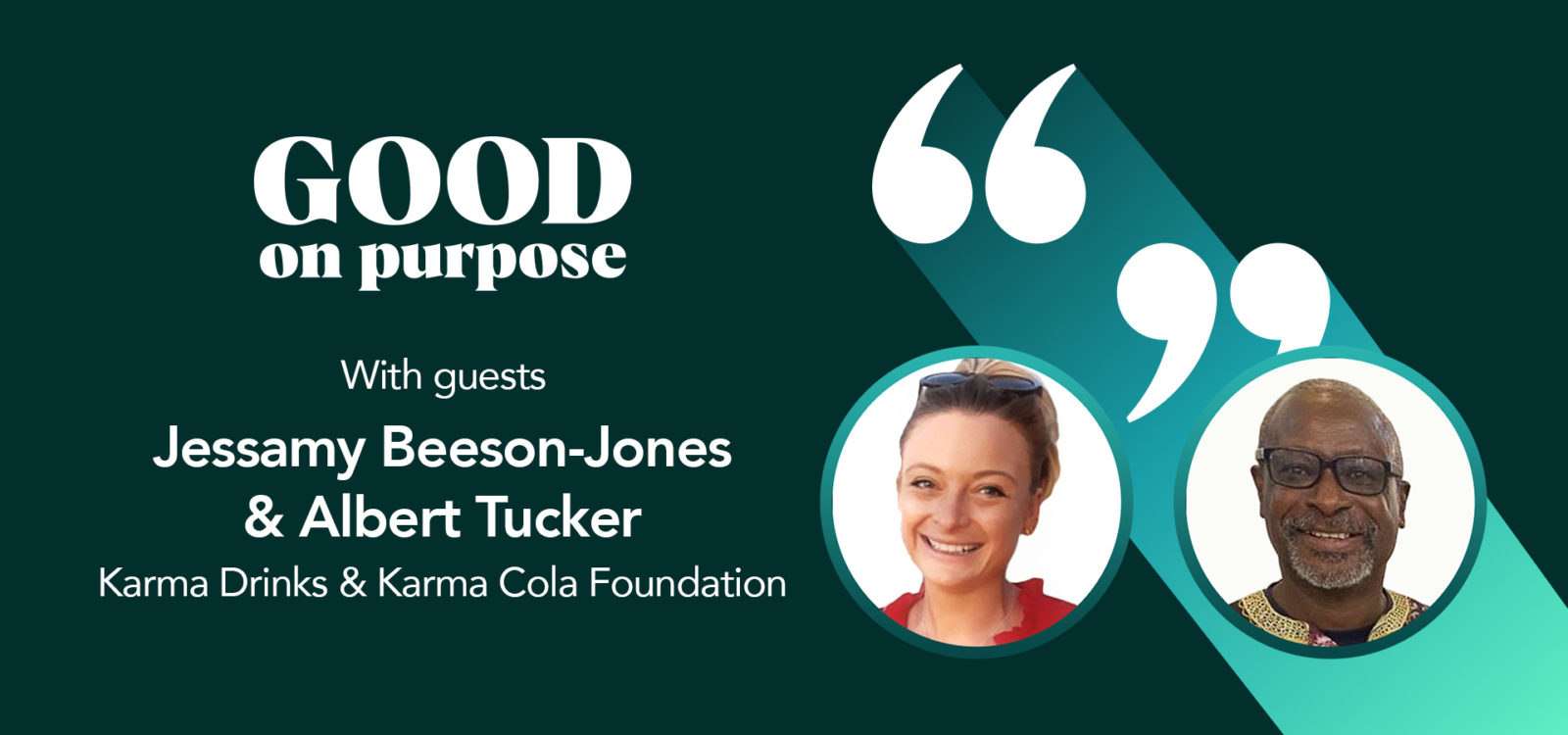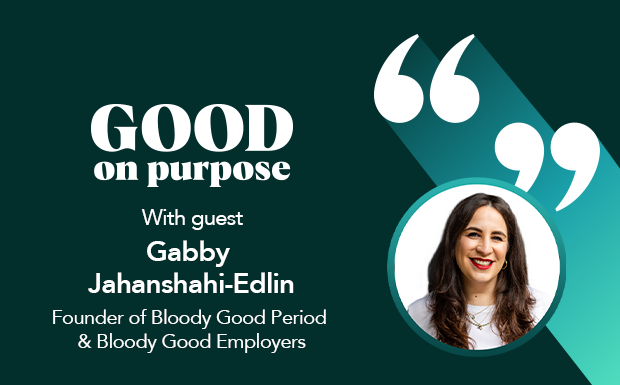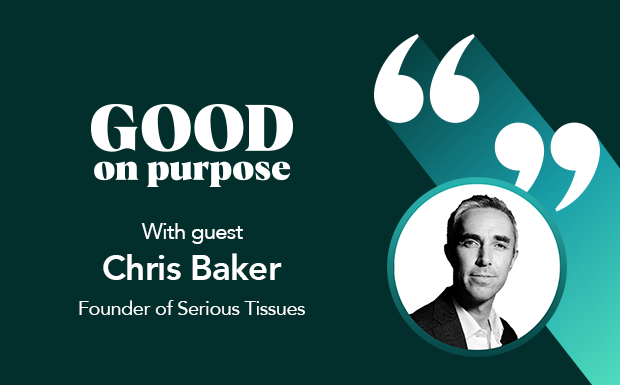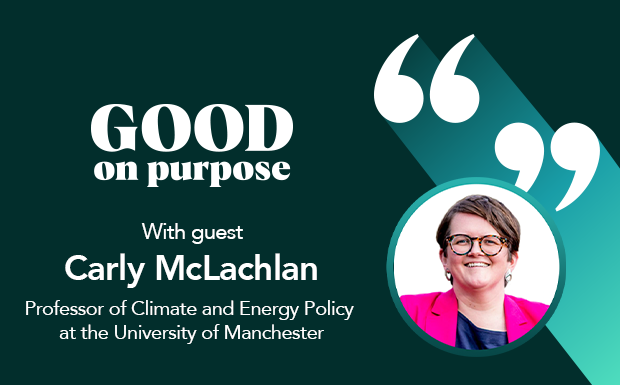
Jessamy Beeson-Jones & Albert Tucker on: How fizzy drinks became a force for good
This episode features Albert Tucker and Jessamy Beeson-Jones. Albert Tucker is Chairman of the Karma Cola Foundation, and a Director of Karma Drinks. Jessamy Beeson-Jones is European Sales & Marketing Director of Karma Drinks. Karma Drinks is an organic and Fairtrade beverage company producing ethically sourced drinks. They share the story of Karma Drinks, and how fizzy drinks became a force for good. They discuss how they balance the social impact agenda with the business agenda, and the need for authentic Purpose to be embedded in order to have an impact.
Every fortnight on the GOOD on Purpose podcast, people who have made a conscious decision to lead a life with Purpose share their inspirations, motivations and life advice. Here, Albert Tucker, Chairman of the Karma Cola Foundation & a director of Karma Drinks and Jessamy Beeson-Jones, European Sales & Marketing Director of Karma Drinks, share theirs…
How fizzy drinks became a force for good
Albert Tucker: I got the request from Simon, Chris and Matt in New Zealand looking for cola nuts. And using FairTrade principles we said well, let’s work with communities, whole communities, not just buy from one farmer and so on. And then we discovered that cola nuts, although they give the drink its name, that of the 1.3 billion drinks units drunk a day none of them really use the natural cola nut anymore. So it was dead cheap. The people who grow it and who gave that quality product to all of us don’t really make much out of it. So we decided to set up a foundation to work with the community of eight villages that are protecting an island, a very, very important environmental island in Sierra Leone, in one of the few natural rainforests left in West Africa. We know that it has 123 different species of plants, 23 primates, and those communities are promised not to cultivate it, not to hunt the animals and to protect it. It was a community that was already doing important things so we sourced cola from them. But it really wasn’t going to be good karma because it was so cheap, because it’s not used in the drinks anymore. So we set up a Foundation, from which 1% of turnover goes into to support them to develop their communities in a sustainable way and to continue protecting the forests.
How the Karma Foundation and its work influences the brand
Jessamy Beeson-Jones: I think the role as I see it anyway, as a marketeer is just to tell those who very human stories, because that’s the whole point about Karma and the Karma Foundation. They are real people growing real ingredients. And this is how something small as a choice in the fizzy drink you drink every day, or every other day, can make a real impact on people’s lives. So that’s what we do, we take these stories, and there are so many of them, because these 3000 villages are full of incredibly interesting people. There are so many tales that have been pulled out of over the last 10 years. And we just try and tell those human stories, whether it’s visually, whether it’s by interviews – that’s what we do.
Balancing the social impact agenda and business agenda
Jessamy: From my side, our business agenda is the social agenda. So we are here for that very purpose. We wanted to create a business founded on purpose to show that people are prepared to pay tiny premium in order to have products that are good for people, good for the planet, and good for the people that grow them. So for us, we wouldn’t come to work every day unless there was a purpose behind it. And unless the foundation had the funds it needs always to keep doing the amazing work.
Albert: At Karma from the start, the social impact has been embedded. The communities we work with, I think I can honestly say, all the founders were in those communities within the first year of us building a relationship with them, so they know those people.
When we go, we stay in the villages with the communities, we travel around the villages. I will say when our teams have gone, they’ve come back really, really inspired by the people they’ve met, we see the school classrooms we’ve built, we see the children in the classrooms. And when we started, we explained to the communities how exactly the business is going to work; that we’re a business, we’re not an NGO project. Because what they told us what they told me in particular was that projects come every three years, they said we want you to do X, Y, and Z and then they’re gone. Then the next project comes along and they want you to change this, then the next project comes along… They were looking for a more long term relationship that’s not necessarily built on tonnes of money coming in, but actually regular consistent support for them to do things they feel can make the community different.
The need for authentic Purpose
Jessamy: Just surround yourself with experts who actually know what they’re doing. So don’t, as a brand, think, oh, I want to make an impact in this sort of tiny place where this is grown. Listen to the people that grow it, ask what they want. And then help them provide it. Don’t sit there in a room in London, wherever it is, and try and dictate what other people should be doing with their lives. But just surround yourselves with experts and crack on with it. Because at the end of the day, the more brands that are trying to do the right thing, the better. And just listen to what people want, and then help them get there.


